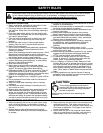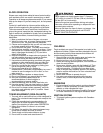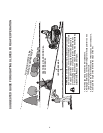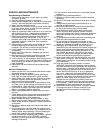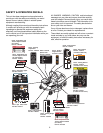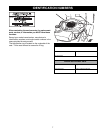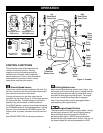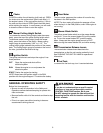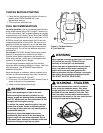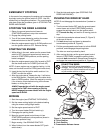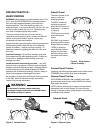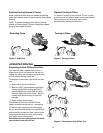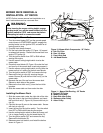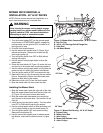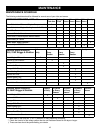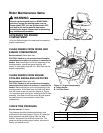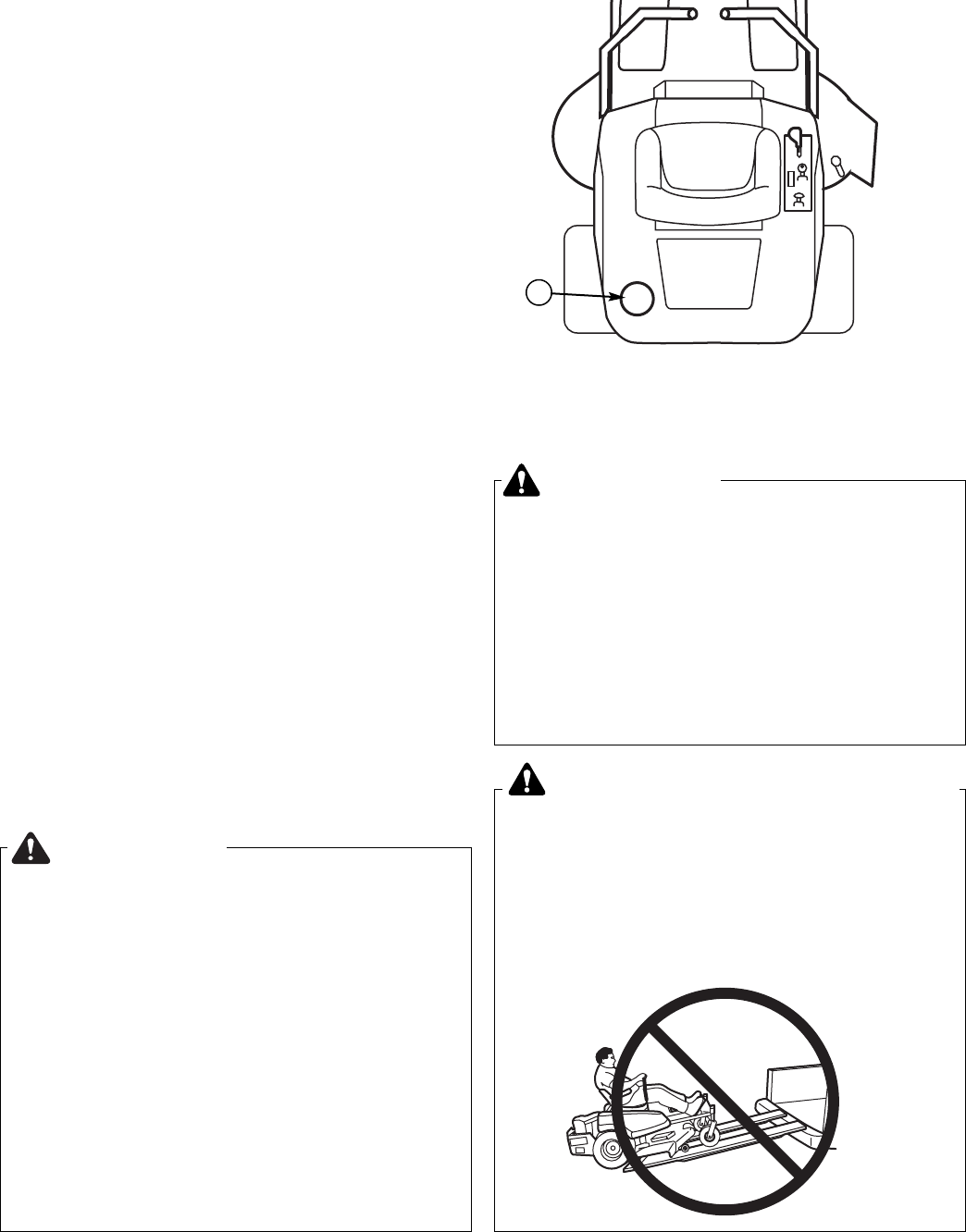
10
WARNING
Never allow passengers to ride on the unit.
Before leaving the operator’s position for any
reason, engage the parking brake and disengage
the PTO. Never leave the unit unattended (i.e. out
of sight) with the engine running.
To reduce fire hazard, keep the engine, rider and
mower free of grass, leaves and excess grease.
Do not stop or park rider over dry leaves, grass or
combustible materials.
Gasoline is highly flammable and must be
handled with care. Never fill the tank when the
engine is still hot from recent operation. Do not
allow open flame, smoking or matches in the area.
Avoid over-filling and wipe up any spills.
Figure 2. Pre-Start Checks
A. Fuel Tank Cap
A
WARNING
Never operate on slopes greater than 17.6 percent
(10°) which is a rise of 3-1/2 feet (106 cm)
vertically in 20 feet (607 cm) horizontally.
Select slow ground speed before driving onto a
slope. Use extra caution when operating on
slopes with a rear-mounted grass catcher.
Mow up and down the face of slopes, not across.
Use caution when changing directions and DO
NOT START OR STOP ON A SLOPE.
Do not load this zero-turn rider on a trailer or
truck using two separate ramps. Only use a
single ramp that is at least one foot wider than
the width of the rear wheels of this rider. This
rider has a zero turning radius and the wheels
could fall off the ramps, or the rider could tip over
injuring the operator or bystanders.
WARNING - TRAILERS
CHECKS BEFORE STARTING
• Check that the crankcase oil is filled to full mark on
dipstick (see CHECK ENGINE OIL in the
Maintenance section).
• Fill the fuel tank with fresh fuel.
FUEL RECOMMENDATIONS
For daily operation: Use only unleaded gasoline with a
pump sticker octane rating of 87 or higher. Gasohol (up
to 10% ethyl alcohol, 90% unleaded gasoline by volume)
is approved as a fuel. Methyl Teriary Butyl Ether (MTBE)
and unleaded gasoline blends (up to a maximum of 15%
MTBE by volume) are approved as a fuel. Do not use
unapproved gasolines, such as E85. Do not mix oil in
gasoline or modify the engine to run on alternate fuels.
This will damage the engine components and void the
engine warranty. Do not use fuel additives other than
fuel stabilizer.
For storage: CAUTION: Alcohol blended fuels (called
gasohol or using ethanol or methanol) can attract
moisture which leads to separation and formation of
acids during storage. Acidic gas can damage the fuel
system of an engine while in storage.
To avoid engine problems always use fuel stabilizer,
especially before storage of 30 days or longer. Use fresh
fuel next season. See STORAGE instructions for
additional information.
Never use engine or carburetor cleaner products in the
fuel tank or permanent damage may occur. To add fuel:
1. Remove the fuel cap (B, Figure 2).
2. Fill the tank. Do not overfill. Leave 2 inches (5 cm) of
space in the tank for fuel expansion.
3. Install and hand tighten the fuel cap.



